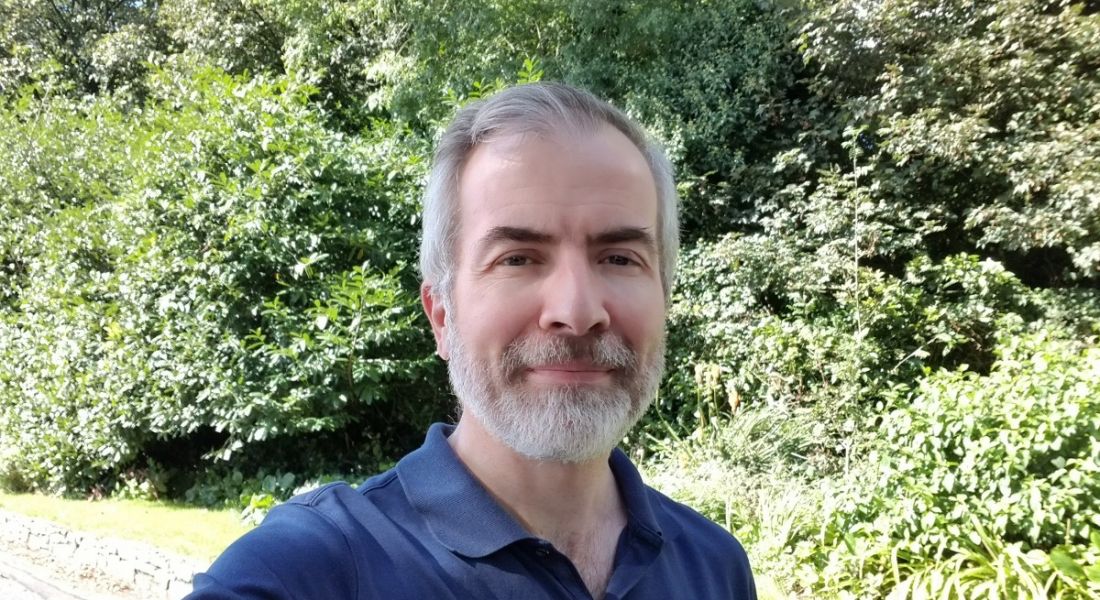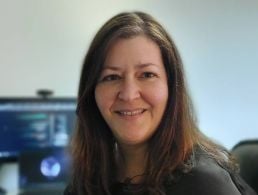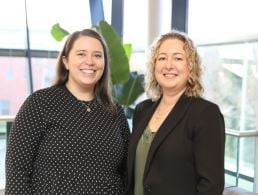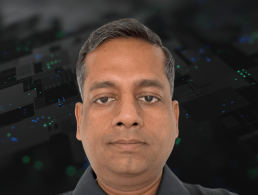Senior vice-president at Fidelity Investments Seán Morris told Siliconrepublic.com about how he came to his leadership role.
We learned about the career journey of Seán Morris, senior vice-president and head of IT enablement at Fidelity Investments.
‘Sometimes your career will throw something at you that is completely unexpected’
– SEÁN MORRIS
What first stirred your interest in a career in this area?
I was really interested in science and technology from an early age, and always an avid consumer of science-fiction. I was one of those kids who loved Star Trek, Isaac Asimov, Doctor Who, Blake’s 7 and Star Wars.
When I got the chance with my brother to invest in a Commodore 64, that got me into programming and an early appreciation for the power of software. I spent all my time poring over the manuals and learning how to write code. Happy days!
What experiences led you to the role you now have?
I studied physics and electronics at NUI Galway, which had a healthy component of computing in there too. After graduating, I got offered a job at Nortel (now Avaya). That landed me my first job as a test engineer in telecoms manufacturing and it turned out to be a fantastic grounding on many fronts – my code had to actually find the faults, and help the technicians troubleshoot and repair the hardware.
I worked closely with some talented R&D engineers to design the test software, and learned the value of collaboration and being meticulous. If I missed something, the consequences were serious as the hardware was often shipped to the far side of the world – no second chances!
During that time, I completed a master’s in computer systems and took on some interesting projects, such as a re-layout of the entire shop floor. Accepting these challenges turned out to be educational in more ways than one, as I realised that while I loved all things technology, my real passion was for leadership.
I moved into my first people management role at the tender age of 25 and, within a few years, I was leading Nortel’s new product introduction team. After a series of adventures, including a start-up, I joined Fidelity in 2002 and haven’t looked back. So, its fair to say I had no plans whatsoever to work in financial services, but it has turned out to be a great career choice.
Since joining Fidelity, I have had such a variety of roles. The common thread has been building skills, brand and relationships – which has always led me to my next opportunity to contribute and learn.
What were the biggest surprises or challenges you encountered on your career path and how did you deal with them?
Sometimes your career will throw something at you that is completely unexpected. For me, this has happened quite a few times: a merger that dramatically changed my role, a business trip suddenly turning into an assignment or finding yourself working with a challenging customer.
You cannot really plan for these things, but you can decide how you want to react to any situation. That is something that is in your control. Being mentally prepared for change has been a big personal development area for me and it’s crucial to the role of being a leader where you often must coach others through change as well.
Another big challenge is the constant marching forward of technology. It’s a great test of your mental flexibility to let go of old ideas and embrace new ones. Sometimes it feels like learning a new language from scratch every few years!
Although it is challenging, it’s also very rewarding, as the opportunity to support your team is strongest when you really understand the technological possibilities and how they will create value for your customers.
Was there any one person who was particularly influential as your career developed?
I’ve had so many great managers, particularly at Fidelity, who I feel very fortunate to have worked for. If I had to single out one person, it would be one of my first managers, who taught me a lot about coaching, taking ownership and, crucially, supported me taking on some big projects and people-management responsibilities at an early stage in my career.
The fact that they were willing to take a chance on me changed my entire career and was a very personal demonstration for me of how leaders can make a positive impact.
What do you enjoy about your job?
I love leading Fidelity’s IT Enablement Centre – it’s a broad and exciting role. I’m working with people across many functions and geographies in Fidelity on some great projects that span such areas as setting up cloud data lakes, digital workplace and mobile analytics strategy for our executive team.
I have an amazing team and wonderful business partners, and we have a truly collaborative culture that’s fun to work in.
What aspects of your personality do you feel make you suited to this job?
I’m a high-energy person, and I’m very strategic and persistent about my goals. Given that part of my role usually involves driving change, these are good traits to have. I’m also a planner – everything I do ends up in a to-do list. My team supports a lot of planning activity across Fidelity technology and appreciating planning, particularly in the Agile context, is core to my role.
I am quite extroverted too in that I get a lot of energy from working with other people. As my job is quite wide-ranging and involves a broad cross-section of folk across Fidelity, I’m never short of inspirational people to work with, which is perfect for me.
Did Fidelity support you on your career path?
Fidelity has been amazing in terms of career support and growth. Beyond access to and support of several senior mentors over my career, I was able to take the opportunity to do an assignment in Boston at Fidelity’s HQ, which was great for learning more about Fidelity and networking across the company.
Since then, there has been plenty of ongoing training as part of my role. Generally, the support to take on new challenges through mobility opportunities and invest in yourself is a strong part of the culture, and I’ve been fortunate to benefit from that.
What advice would you give to those considering a career in this area, or just starting out in one?
Every career is a journey and there are a few key transitions to watch out for and plan accordingly, such as moving from a technical role to management.
Find good mentors, which is often a function of how hard you work, by demonstrating a willingness to learn and not being afraid to ask.
Also, deciding on broader changes in your career. An example of this for me was leaving manufacturing and starting on a path towards technology leadership roles by gaining consulting experience.
Most importantly, keep learning! It’s a prerequisite for a successful, resilient career. If it feels like you’re moving out of your comfort zone, you are on the right path!




